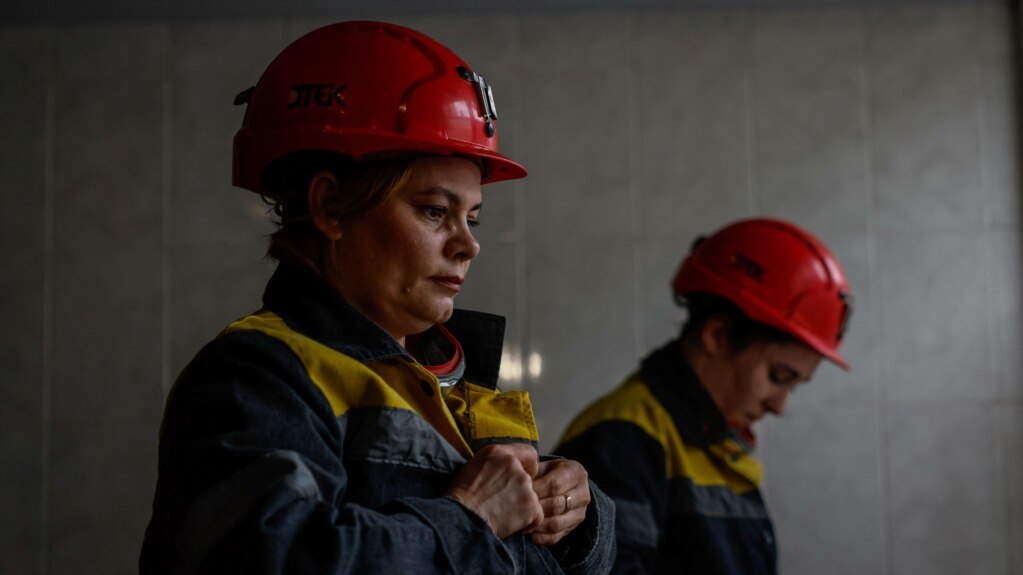After more than a thousand of its workers went to fight Russia’s invasion, a coal mine in eastern Ukraine needed workers. Its answer was to permit women to work underground for the first time in its history.
Over a hundred accepted the offer.
"I took this job because the war started and there were no other jobs," 22-year-old Krystyna said. The mine’s officials asked Reuters not to give the last names of those who talked to the news service.
For five months, Krystyna has worked as a technician 470 meters below ground. She works on the small electric trains that move workers more than four kilometers down the mine.
She agreed to take the job after overcoming her fear of leaving her four-year-old son, Denys, at home with her mother. Her hometown of Pavlohrad is 100 kilometers from the front but it is often hit by Russian missiles.
The work is interesting but difficult, she said. The equipment is heavy and the steam is not easy to deal with. But the pay is good and she feels a sense of duty to stay and do her part for those who have gone to fight.
Her older brother worked in the same mine. He joined the army two weeks after the start of the invasion, Krystyna said. She added she worries greatly about him.
She said, "Our boys were taken to the front, and now we need to support them: there is no one else to work in the mine now."
Ukraine’s coal industry was once one of the largest in Europe. It has suffered many years of decline since the collapse of the Soviet Union. The government-controlled market which it supplied suddenly was not there.
Russia-backed militias in eastern Ukraine took over many coal-rich areas in 2014. After the 2022 invasion, Russia occupied even more mines.
DTEK is the mine’s owner and Ukraine’s largest private energy company. It says nearly 3,000 of its 20,000 mineworkers are fighting.
Of the thousand miners at this mine and its nearby other mine who went to fight, 42 have been killed.
Although some women worked in the mines before the war, they were barred from doing jobs underground by the government. The work was considered too physically demanding. The policy had been in place since the Soviet times.
The ban was removed during the war. Now, about 400 women work underground at DTEK’s mines. That is only 2.5 percent of the underground workforce.
"We do everything on the same level as the men – unless it’s something very heavy that we can't lift," 43-year-old Natalia said. She also works as a technician who looks after the trains.
Natalia used to work in a shop selling electronics until she lost that job when Ukrainian businesses closed their doors at the beginning of the invasion. When she decided to work in the mine, her 19-year-old son had already worked in a neighboring mine for a year.
"Actually I had been convincing him not to go and work there," she remembered. But she said she was now happily working in the mine and planned to stay, even after the war.
I’m Gregory Stachel.

